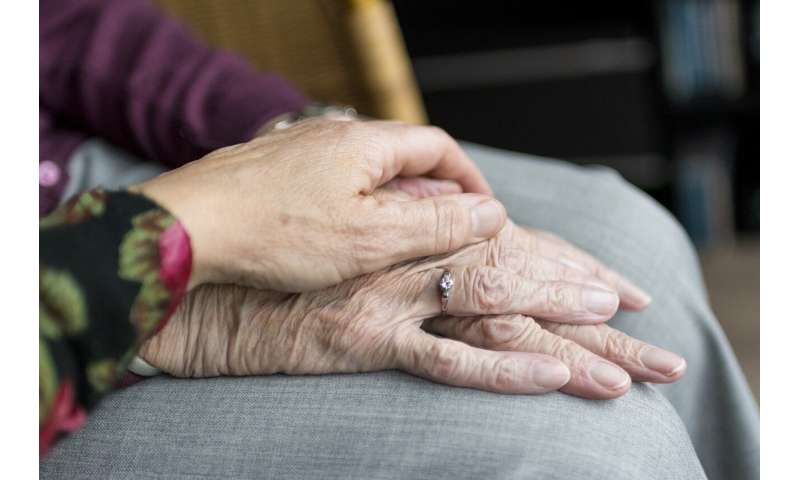Experience of caring for a loved one linked to valuable end-of-life discussions

End-of-life discussions, considered an essential part of high-quality end-of-life care for patients with life-threatening illnesses, make it easier to provide treatment and care that satisfy the patient’s wishes. They also contribute to reducing depression and complicated grief among bereaved family members. In countries with increasing numbers of older people, such as Japan, there’s a strong need to find how to have these discussions and how to make them effective.
A new study centered at Japan’s University of Tsukuba found an important connection between the experience of caring for a loved one and the likelihood of having end-of-life discussions. Also, while experiencing someone’s death may seem like another factor that would encourage these discussions, the study did not find such a connection. The findings were published in the Journal of Pain and Symptom Management.
“Compared with in Western nations, research has found people in Japan are less likely to engage in end-of-life discussions,” study co-author Professor Takehiro Sugiyama says. “We wanted to find what factors relate to having these discussions, and what sort of people do and don’t have them.”
The research divided respondents into two groups based on their experience having end-of-life discussions: those who had engaged in such discussions and those who had not. The main predictors were the experiences of the death of and care for a loved one.
This appears to be the first study to clarify the association between the experience of caring for a loved one and the history of having engaged in one’s own end-of-life discussions. The team used a nationwide survey to gather data on nearly 1,000 men and women, young and old. Then they further looked at where these experiences took place, along with possibly related factors, such as people’s age, sex, and family makeup.
They found a clear connection between the experience of caring for a loved one and end-of-life discussions, irrespective of the caregiver’s age. However, they found that experiencing a loved one’s death was not associated with these discussions. They also found that men, both those under 65 and those aged 65 and older, were less likely to have such discussions.
The findings additionally revealed potential factors associated with being less likely to have end-of-life discussions: younger age and not having a family doctor. This means health-care providers may need to highlight the need for further education to promote the importance of end-of-life discussions, especially for younger people and for men.
“Caregiving involves factors such as managing a loved one’s medication, supporting them, and advocating for them,” first author Kyoko Hanari says. “These factors may motivate people to initiate end-of-life discussions. That and our other findings are a useful base to build on, seeing the beneficial impacts of these discussions.”
Source: Read Full Article
